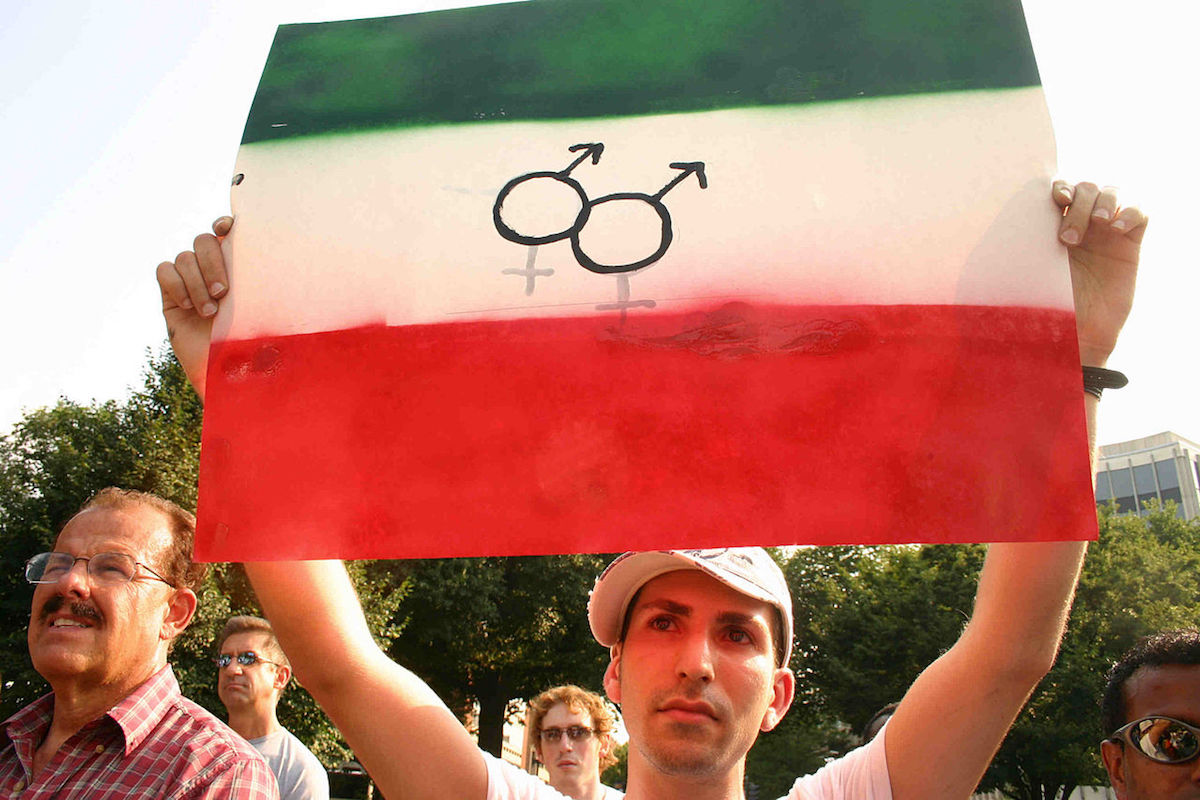recent
Trump, Partisan Politics and Gay Rights
The fact that the new initiative is being led by a gay man, U.S. Ambassador to Germany Richard Grenell, means little to these ideologues. In their narrative, Grenell is either a sellout or a stooge.

On February 19, the administration of U.S. President Donald Trump announced a new international gay-rights campaign, which will focus on fighting laws in 72 countries that still treat same-sex relationships as criminal acts. “Although the decriminalization strategy is still being hashed out, officials say it’s likely to include working with global organizations like the United Nations, the European Union and the Organization for Security and Cooperation in Europe, as well as other countries whose laws already allow for gay rights,” reported NBC News.
Most of the targeted countries are in the Middle East and Africa. But it is widely suspected that the policy was formulated with one specific country in mind: Iran, a long-time U.S. adversary that ranks as one of the worst gay rights abusers in the world. Indeed, Iran is one of only four countries where the death penalty for homosexuality is codified under Sharia and implemented on a countrywide basis (the other three being Sudan, Saudi Arabia and Yemen). This is not simply a case of archaic old laws that the Iranian government just never rescinded. In fact, a 31-year-old man was hung in the Iranian city of Kazeroon on homosexuality-related charges as recently as January.
Given all this, one might think that a campaign against the criminalization of homosexuality would present a rare instance in which even progressives would give Trump credit for doing the right thing. But some on the left have abandoned the opportunity for common cause, and instead have argued that this move only proves Trump’s status as a bigot and hypocrite.
One column on the subject that went viral, for instance, was titled “Trump’s Plan to Decriminalize Homosexuality Is an Old Racist Tactic.” The Out magazine piece informed readers that Iran’s anti-gay policies recently have “softened” (never mind the occasional hanging). Author Mathew Rodriguez also claimed that Trump’s move is “part of an old colonialist handbook,” and an example of the “racist, paternalistic process by which colonizing powers would decry the way men in power treated oppressed groups…to justify attacking them.”
"Rather than actually being about helping queer people around the world, Trump's campaign looks more like another instance of the right using queer people as a pawn to amass power and enact its own agenda," writes @mathewrodriguez. https://t.co/xKAP5u6ZvC
— Out Magazine (@outmagazine) February 19, 2019
It’s tempting to laugh off such rhetoric as a symptom of “Trump Derangement Syndrome.” But my own experiences within the American gay community have shown me that there is a deeper trend at play—one that won’t end when Trump leaves office. Gay writers and progressive LGBT activists have become so consumed with partisan politics and intersectional ideology that they cannot concede the possibility that their opponents may have done some good in the world.
The fact that the new initiative is being led by a gay man, U.S. Ambassador to Germany Richard Grenell, means little to these ideologues. In their narrative, Grenell is either a sellout or a stooge. A left-wing writer at Teen Vogue dismissed the ambassador as a “pawn.” And even some prominent elected Democrats have joined in on the backlash. Rep. Robin Kelly (D-IL) took to Twitter to bash the president after his announcement (begrudgingly including the caveat that she does, apparently, “support global LGBT-decriminalization efforts”).
Even established gay-rights groups joined in on the anti-Trump pile-on. The Human Rights Campaign bills itself as America’s largest “national lesbian, gay, bisexual, transgender and queer civil rights organization,” with a mission to build “a world where LGBTQ people are ensured of their basic equal rights, and can be open, honest and safe at home, at work and in the community.” But while Trump’s move is entirely consistent with these goals, the HRC response to the Feb. 19 announcement was bizarre, as they put out a scathing Twitter thread attacking Trump for a laundry list of actions unrelated to his recent initiative (including a one-off joke the president reportedly made in regard to criticism of his record on LGBT issues).
A few of the non-sequiturs listed in the thread do represent real blots on Trump’s record, like his limitations on transgender troops serving in the U.S. military. But why is this the HRC’s same-day reaction to a pro-LGBT initiative? To an outside observer, it seems that the HRC is more fixated on attacking Republicans than addressing the fact that a third of the countries in the world treat people like me as criminals for the way we were born.
The narratives behind social justice, “intersectionality,” and decolonization typically emphasize the need to consider the race, gender and sexual orientation of everyone involved in a discussion, or affected by an underlying rule, decision or policy. That might sound like a recipe for understanding and tolerance at first glance, but the reaction to Trump’s initiative shows how such doctrines can have destructive consequences. This thinking leads to an all-consuming focus on the identity of the people championing a new idea, as opposed to the merits of the idea itself: And so it becomes more satisfying to excoriate a Republican president standing up for gay rights than to acknowledge the vicious homophobia of a Muslim-majority foreign country that can be cast as oppressed or disadvantaged.

As a gay conservative, I’ve described how identity politics warps the objectivity of many progressives within the LGBT community. Gay people (and their “allies”) now are routinely scared to agree with an orthodox Christian or traditional conservative on an issue like tax policy or internet censorship, lest the gesture somehow be construed as support for homophobia or opposition to gay marriage. As with the reaction to Trump, under this worldview the issue under discussion doesn’t matter—just the identity of the person arguing it. Given all this, why would future conservative lawmakers ever bother to compromise or reach across the aisle? Their critics will condemn them anyway. Intersectionality has given everyone an incentive to “stay in their lane”—including when that lane is undilute conservatism.
I don’t agree with Trump on everything, and he has said and done some seriously objectionable things as president. But all reasonable people must be able to give credit when its due. So I, for one, thank his administration for promoting a long-overdue gay-rights initiative on the international stage, even if the president also sees it as a convenient pretext for scoring points against Iran. As for the progressives who opposed the initiative on the basis of who happens to be sitting in the White House, they need to look in the mirror: Their ad hominem reflexes reveal a political sickness that’s tearing liberalism apart.






